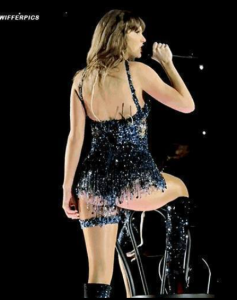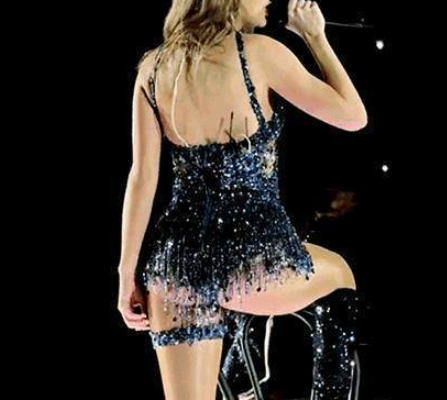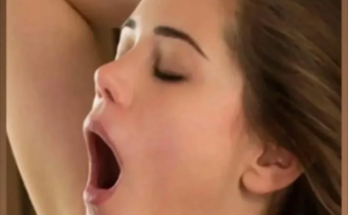
“When the Music Stopped”
The stadium lights blazed like daylight as the crowd erupted for one of the biggest pop stars in the world — Lena Hart. For more than a decade, she had ruled the charts with her shimmering voice and vulnerable lyrics, the kind that made millions of fans feel seen.
But tonight was different.
It was supposed to be the grand finale of her world tour — the night cameras would capture her triumph, the night she would prove she was still the queen of pop. Instead, it became the night everything fell apart.
The First Sign
Lena stepped on stage in a cloud of glitter and light, her sequined jacket catching the glare of the spotlights. The opening chords of her latest single echoed through the stadium — a song written after a painful breakup, full of heartbreak and defiance.
But even as she sang, she sensed something was off.
The audience was restless. People were cheering, yes, but not with the same energy. Phones lit up the crowd — not to record her performance, but to check messages, scroll feeds, and film themselves instead of her.
Halfway through her second song, a wave of movement caught her eye. Rows of people began trickling toward the exits.
At first, she thought it was nothing — maybe fans heading for concessions or bathrooms. But then the movement grew. Dozens became hundreds.
And by the time she reached the final chorus, an entire section of the arena had emptied.
The Silence Between Songs
When the song ended, Lena tried to fill the air with her usual confidence.
“How’s everyone doing tonight?” she shouted, forcing a smile.
Cheers came back — scattered, polite, uncertain.
Her voice faltered for a moment. She glanced toward her band, who looked back with quiet unease. The sound technician gestured something she couldn’t hear. Then, without warning, the monitors crackled and went silent for a beat too long.
The timing couldn’t have been worse.
Fans who had been filming began shouting, and more started to leave. The chatter in the stands grew louder than the music.
Lena swallowed hard, adjusting her microphone. “Don’t worry,” she said, her voice trembling slightly. “We’re just getting started.”
But even she could feel the energy slipping through her fingers.
Backstage Confusion
After the fourth song, she hurried backstage under the pretense of a costume change. Her manager, Nate, was waiting, headset in place, face pale.
“What’s happening out there?” she asked. “Why are people leaving?”
He hesitated. “There’s… a delay on the livestream. Some fans online thought the show was canceled because of a sound issue earlier. The rumor spread fast.”
Her heart sank. “They thought it was canceled? But I’m literally out there!”
“I know,” Nate said, rubbing his temples. “But once people start walking out, others follow. They see the exits crowded and assume something’s wrong.”
Lena exhaled shakily, the weight of years of fame pressing down. “So I’m losing my audience because of a glitch?”
“Not just that,” he admitted softly. “Some fans are upset about the ticket prices and delays from last week’s shows. Social media’s been… rough.”
She nodded, too stunned to speak.
The Choice to Continue
She could’ve ended it there. No one would have blamed her.
But as she stood in front of the mirror, looking at her reflection — smeared glitter, sweat-dampened hair, eyes wide with disbelief — something inside her hardened.
Lena had built her career on authenticity. If this was how it ended, she wanted to end it honestly.
She grabbed her acoustic guitar and told the stage manager, “Turn off the big lights. Just one spotlight. No production. I’m going back out.”
The Return
When she walked back on stage, half the stadium seats were empty. The cheers were faint, hesitant. But she didn’t care.
She sat at the edge of the catwalk, knees crossed, guitar resting in her lap.
“I think something got lost tonight,” she said quietly into the mic. “Maybe it’s my sound. Maybe it’s me. Maybe we all just forgot what this was supposed to be — music, connection, heart.”
The remaining crowd grew silent. You could hear the wind through the open roof.
She strummed a soft chord — one of her earliest songs, the one that had first made her famous ten years earlier. Her voice trembled at first, then grew steadier.
By the second verse, people began turning their flashlights on. One by one, tiny stars of white light shimmered across the stadium, until the dark was filled with a constellation of phones held high.
She didn’t sing for cameras or applause. She sang for the handful of fans who stayed — for the ones who remembered why they loved her in the first place.
After the Show
When the lights came up, the audience that remained rose to their feet in a standing ovation. It wasn’t the roar of 50,000 voices — but it was real.
Backstage, her team was stunned. “You turned it around,” Nate whispered, shaking his head in disbelief. “You just played the best set of your career.”
Lena smiled faintly. “I didn’t turn it around. They did.”
That night, clips of her acoustic performance went viral — not for the walkout, but for the vulnerability she showed. Fans online who had left early shared apologies. Others who hadn’t attended called it “the most human concert moment of the decade.”
For once, the headlines weren’t about ticket prices or celebrity gossip — they were about heart.
Weeks Later
In a quiet interview with a music magazine, Lena reflected on that night.
“Every artist has a moment when the crowd doesn’t love you the way they used to,” she said. “You can either panic or you can sing through it. I chose to sing.”
She took a sip of coffee and smiled. “It hurt at first. But maybe I needed that silence. It reminded me who I am when the noise fades.”
A Song Reborn
Months later, her new single dropped — a stripped-down ballad called “Half-Empty Arenas.” It wasn’t about fame, or heartbreak, or the industry. It was about finding peace in imperfection.
The chorus echoed the moment that changed her life:
“Even if the lights go dark and the crowd walks away,
I’ll keep singing to the echoes — they’re the ones who stayed.”
The song shot to the top of the charts. But more than that, it resonated deeply with people — not as a comeback anthem, but as a testament to grace, resilience, and truth.
And every time Lena Hart stepped onto a stage after that, she carried that night in her heart — the night she lost her crowd, and found herself.

